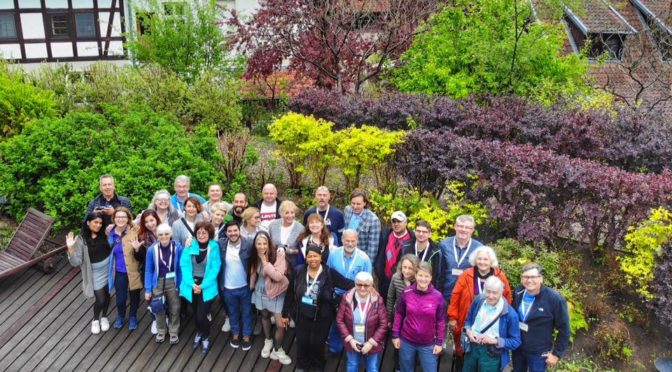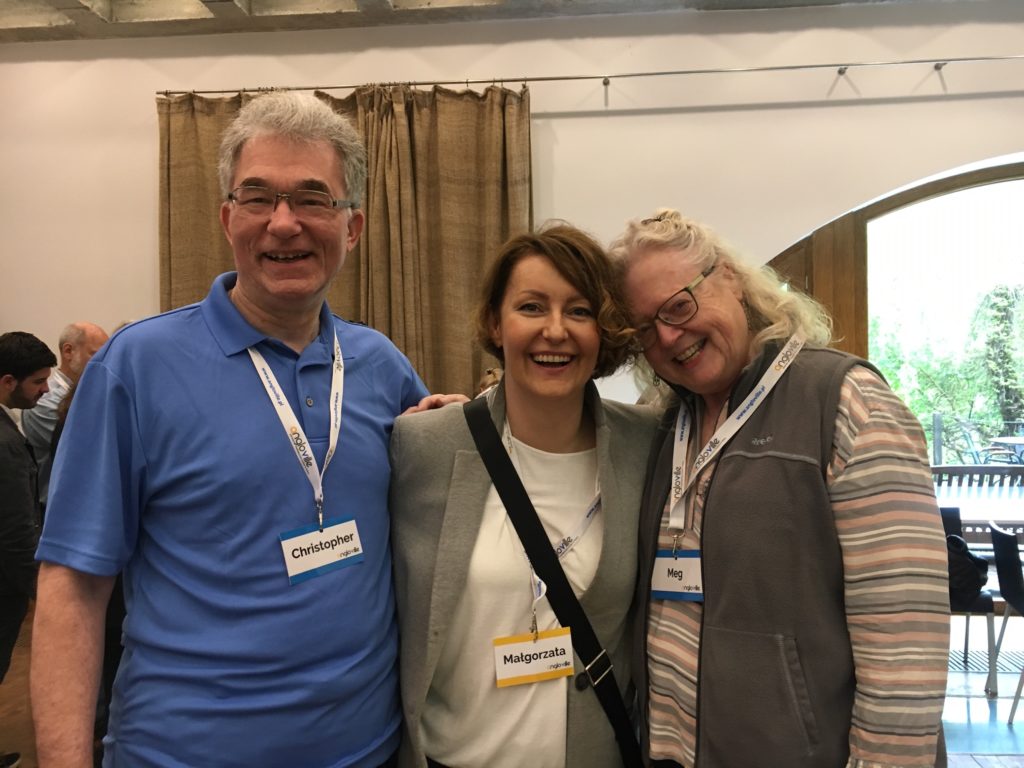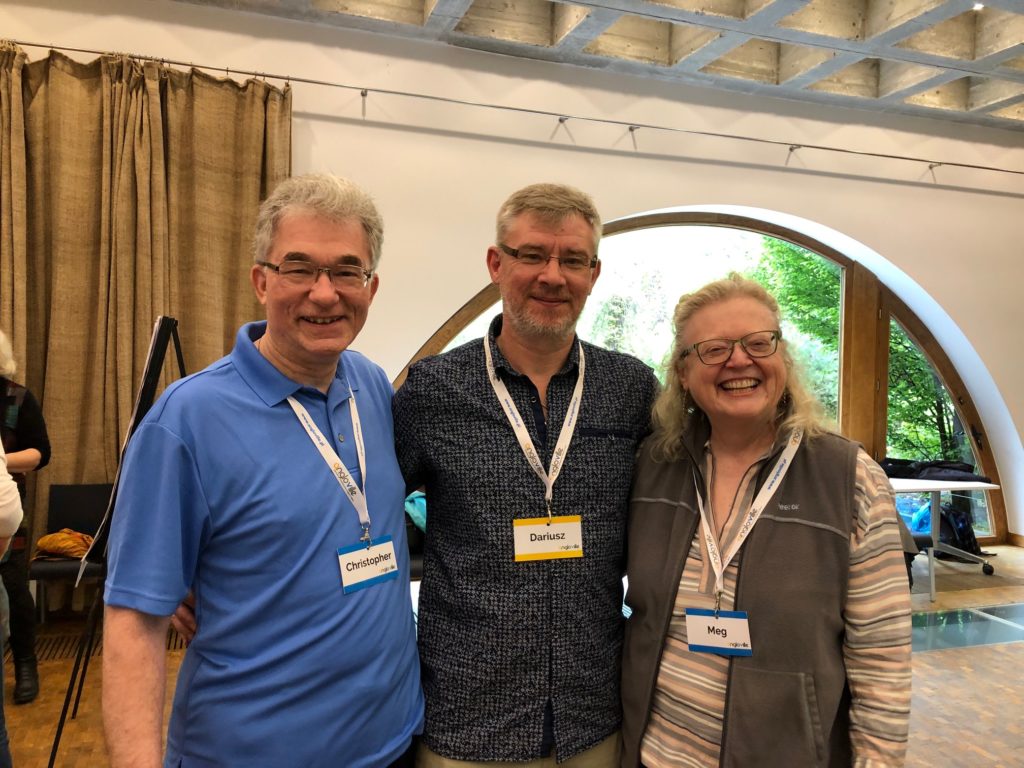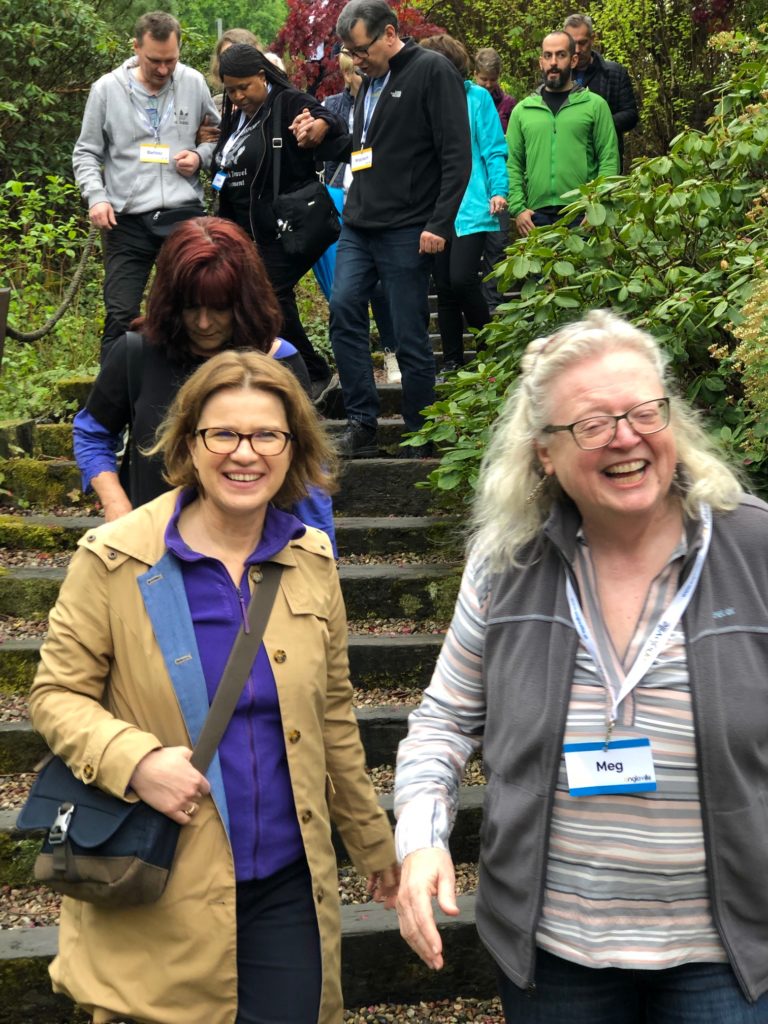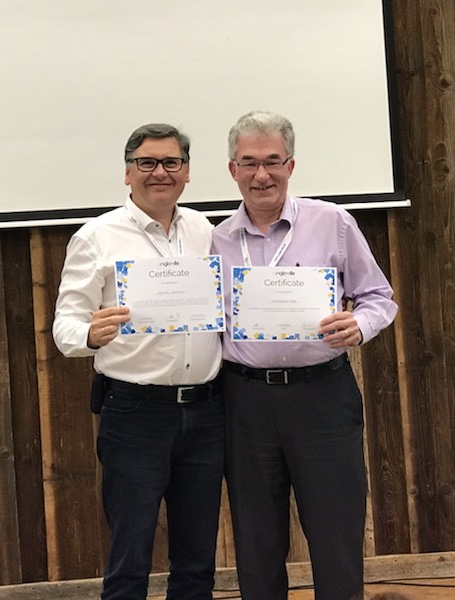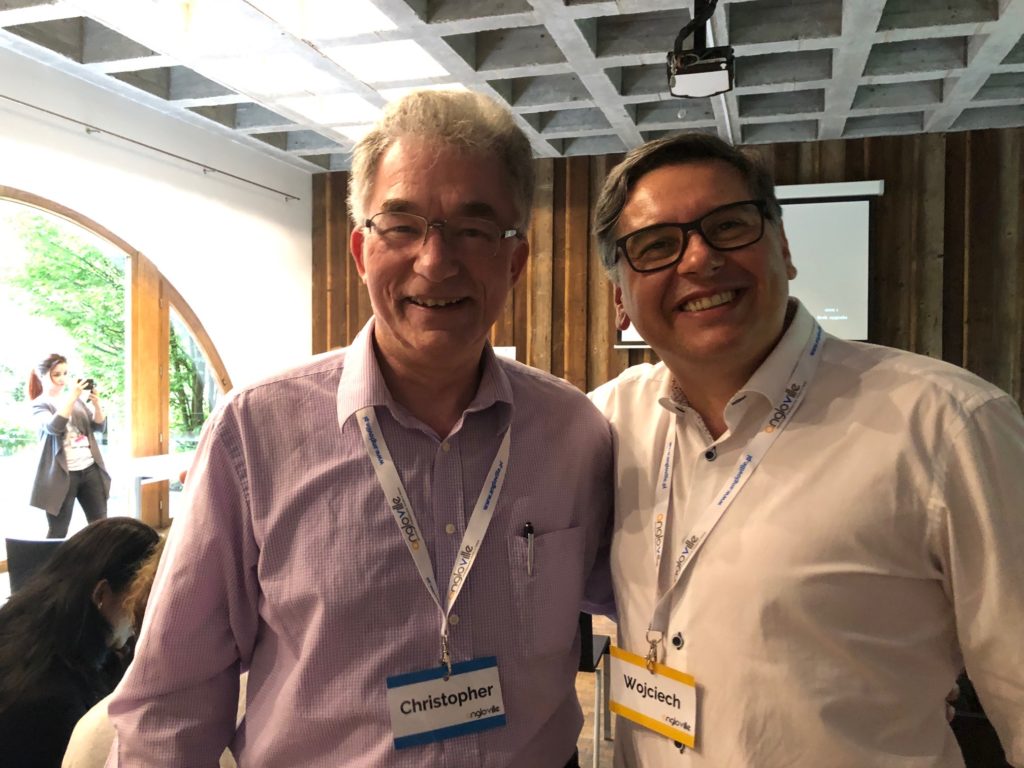Some people go to exotic locales, cruises or romantic getaways on their vacations.
Me?
Because I know how to show my wife a good time, I whisked her away to a remote resort in Godkowo, Poland, a village with a population of 260, about an hour east of Gdansk.
The community does not have a traffic light and we had to travel on a badly rutted road to reach our destination.
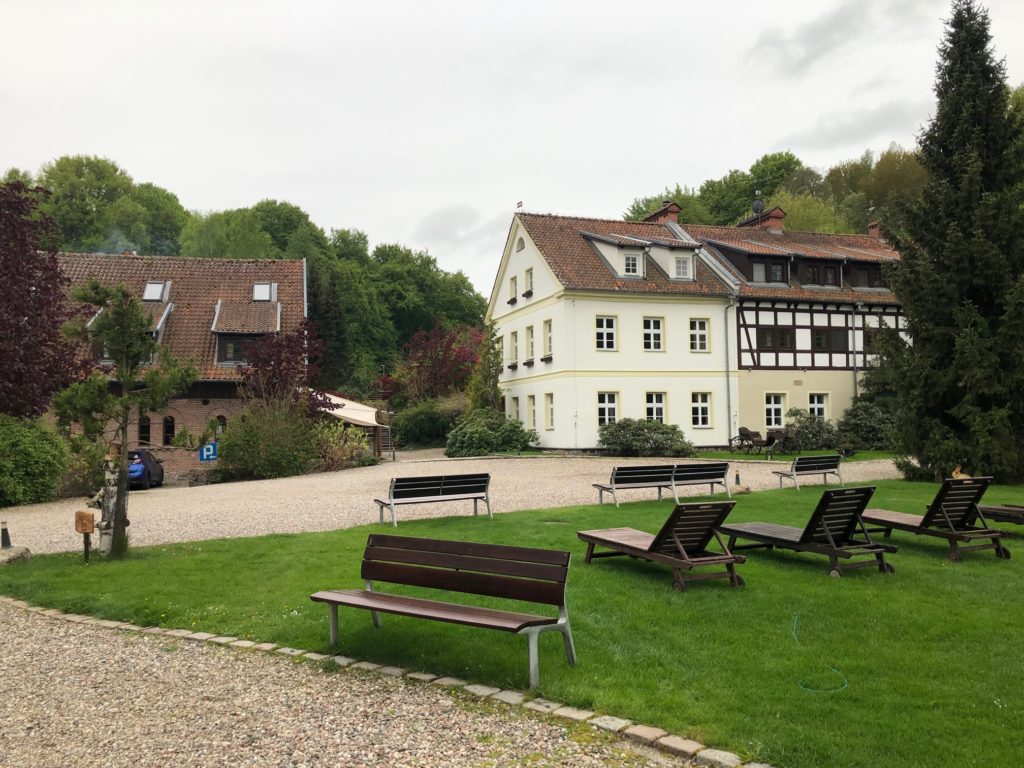
Młyn Klekotki Hotel.
But before you sign me up for marriage counseling, let me tell you that we have never been on a vacation where we worked so hard and enjoyed ourselves so much.
The adventure came courtesy of a program called Angloville. We volunteered to help adult learners improve their conversational English over an immersive six days.
Angloville covers your board and meals, transportation to and from the site of the program and a tour of the city from where you leave — in this case, it was Gdansk.
In return, you are responsible for getting to the meeting place in the start city (including airfare and hotel stays before and after the program) and to gab in English with non-native speakers for 12 hours a day, including at meals and social time.
I can hear you saying: “Talk for 12 hours a day? Piece of cake! Sign me up!” But let me tell you, it was intensive work that required power naps during afternoon breaks.
That said, the experience was hugely rewarding, educational and fun.
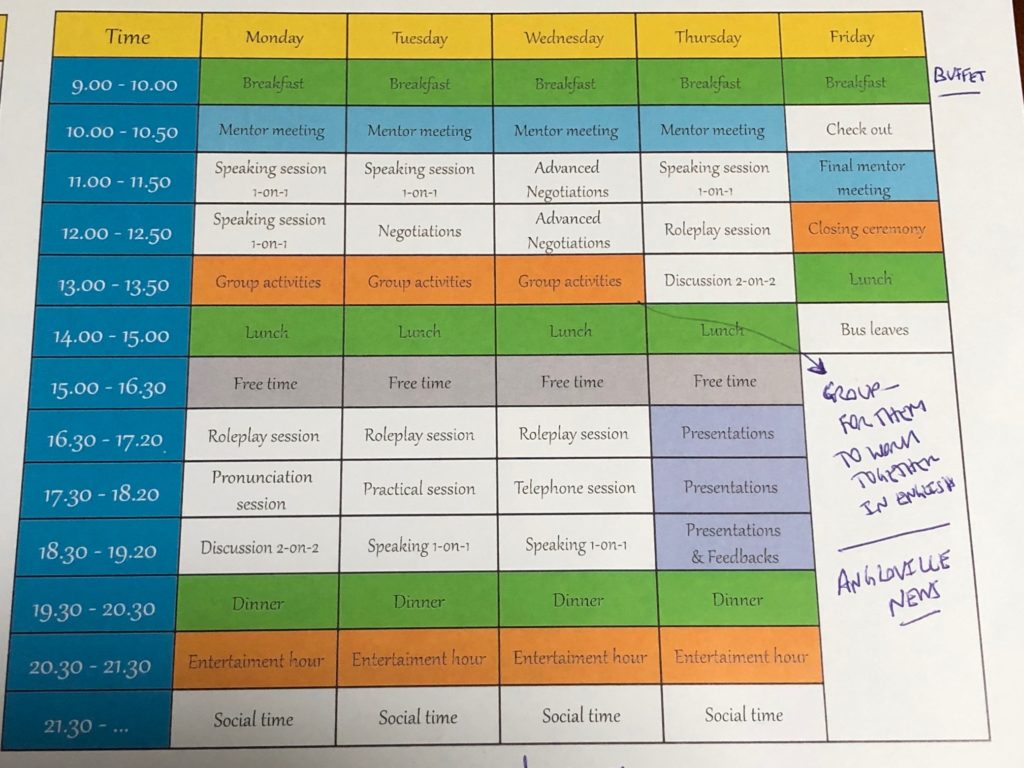
The non-native speakers were wicked smart. (Note to my newfound Polish friends who might be reading this: “Wicked” in this case does not mean “evil” but is a modifier meaning “intensely.”)
The students were all accomplished professionals. Our group had, among others, a pediatrician, toxicologist, professional scuba diver, chemist, two entrepreneurs, an airport manager and several business executives.
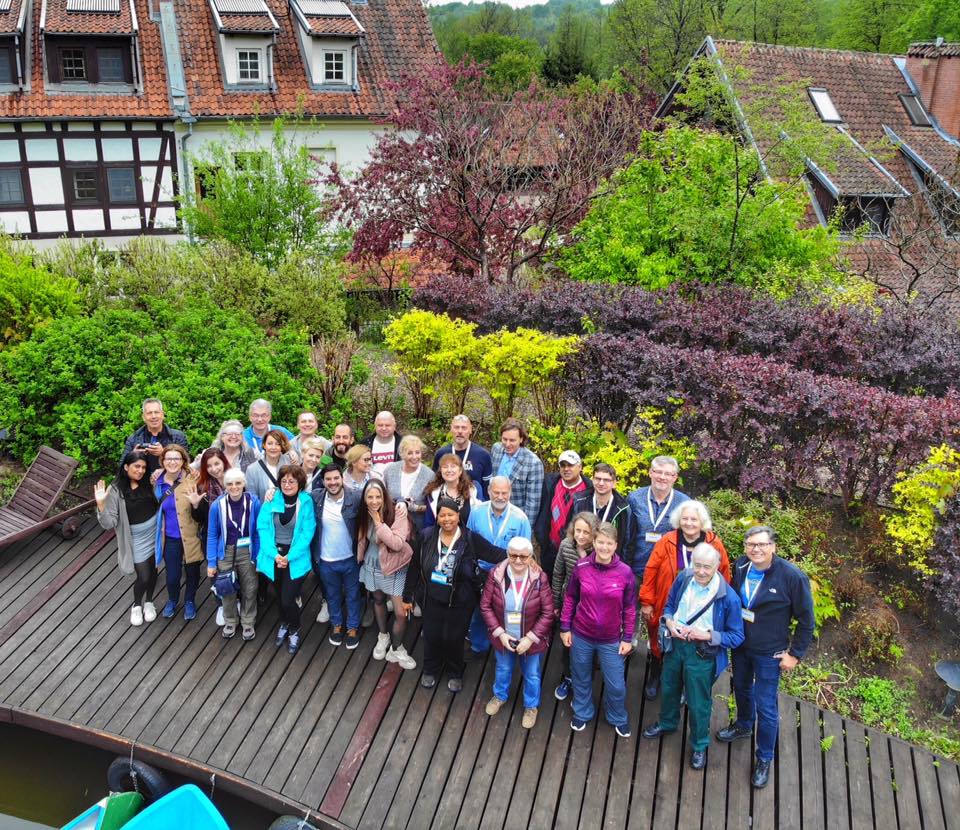
Olivier Grau and his amazing drone!
This was not an introductory language program. Participants were at least intermediate English speakers and many were proficient. (Hell, some spoke English better than I did!)
The program exposed them to native speakers with different accents: Many of the volunteers were from Canada, five from the United States, and the rest a mix from Wales, the UK and Australia.
Sessions varied from one-on-ones, in which you and a student were paired up to chat for 50 minutes, sometimes with a suggested topic; role-playing in which you and the student were given a scenario, such as a negotiation; group activities and two-on-two sessions.
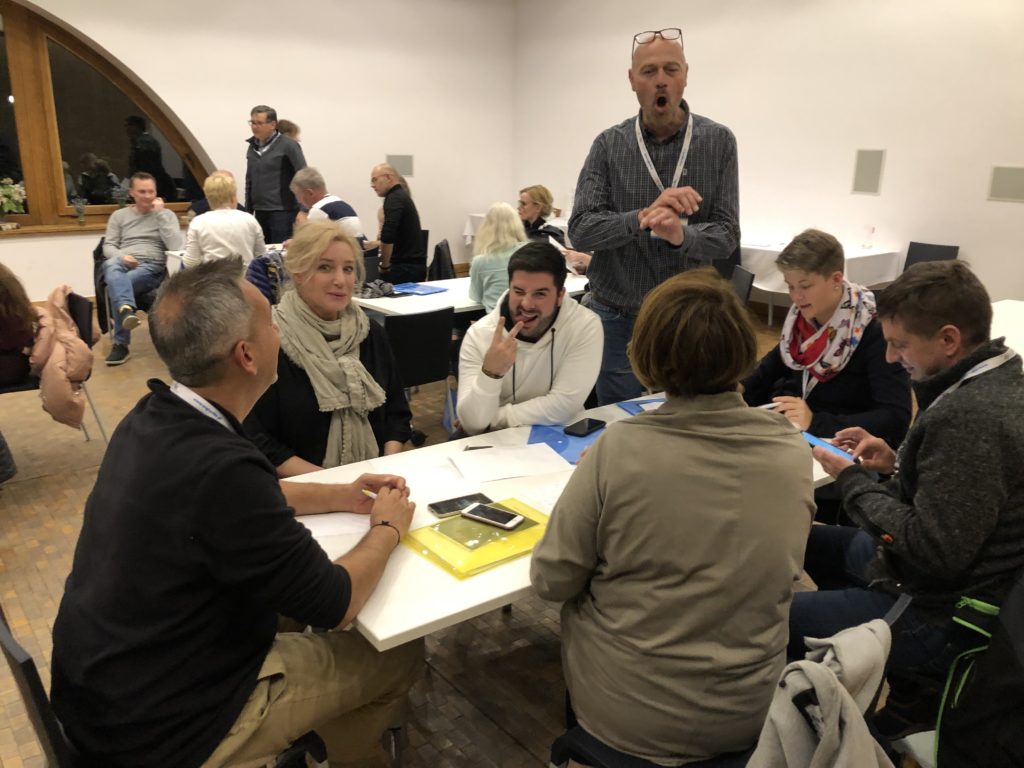

Meg and her mentee,
Bartosz Duma
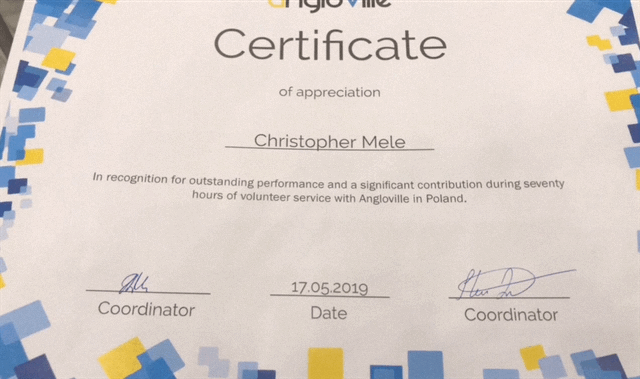
Each native speaker was also assigned a mentee to help them prepare a five-minute presentation at the end of the week.
Talking in English to non-native speakers and stopping to explain the many idioms and slang-y expressions I use proved challenging.
Among the highlights: I taught one student “Don’t break my chops” and how to apply the phrase “bullshit” correctly.
My wife taught some lovely Polish women the importance of what to say if they visited New York City and some sketchy guy approached and asked if they wanted to come home with him.
My wife’s vocabulary lesson? “Fuck you, asshole!”
(A note to the Angloville organizers: Please don’t hold this against us.)
Lest you think it was all work and no play, rest assured there was socializing with much merry-making of drinking, dancing and singing. On the final night we were together, my mentee – a helluva sweet guy – bought a bottle of vodka to share.
I did not want to be rude, so I had a shot – or was it seven? – until I was very (new vocabulary word) “unsober.”
While the advancement in the students’ English was amazing to watch as the week progressed, what was more precious was the close bonds that were created.
Imagine your most fun, intense summer camp as a kid where a group of people who started as strangers finished as friends. It was like that, but for grown-ups.
Angloville was about more than just improving conversational English or learning about different cultures.
Over the course of a week, mentors and mentees talked about their hopes, aspirations, insecurities, fears and stories of their successes and failures.
The program was more than just a random collection of individuals. It promoted a shared humanity and fostered connectivity, regardless of our backgrounds.
And that, in any language, is something to be celebrated.

